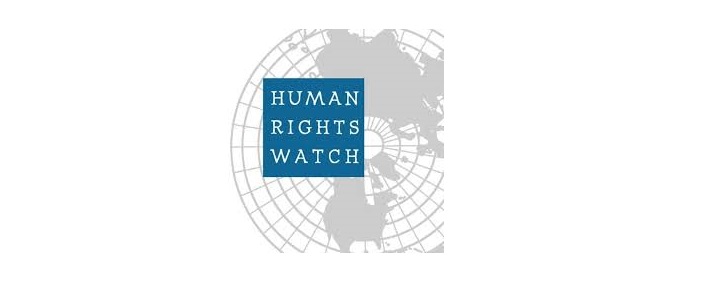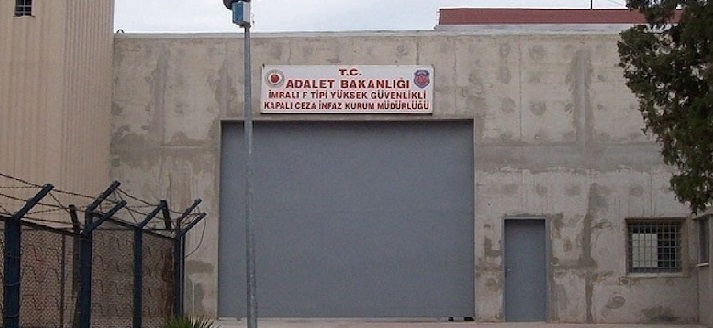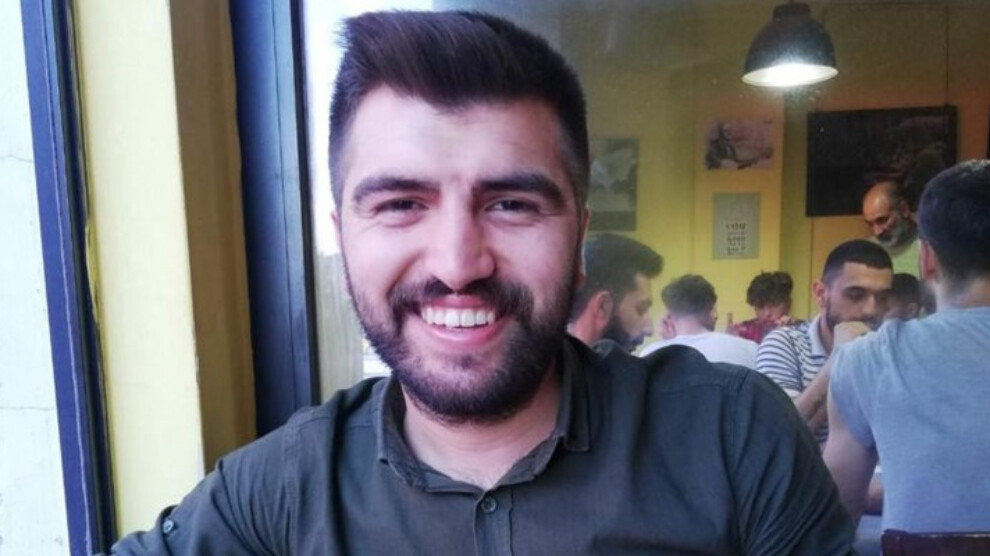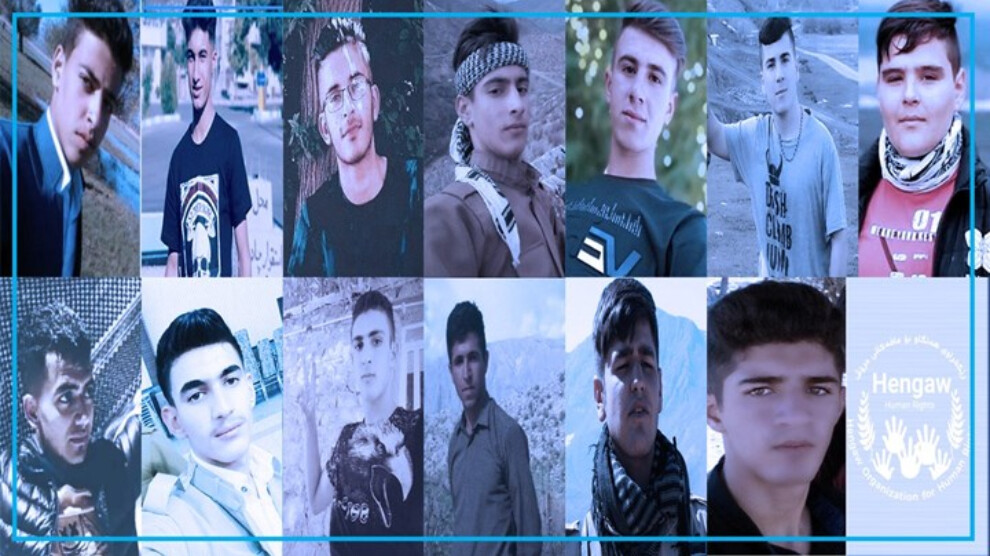
Human Rights Watch called on the Security Council to repeal Resolution 2,504 of January 10 this year, and affirmed that restrictions imposed by the Iraqi and Syrian authorities are impeding the arrival of the required medical aid and personnel to the areas of northern and eastern Syria as part of efforts to combat Corona pandemic.
Human Rights Watch explained that the Iraqi and Syrian authorities have impeded efforts to deliver aid to the regions of northern and eastern Syria and said: “Restrictions on the delivery of aid from Damascus and Iraq hamper the delivery of medical supplies and crews required to prevent the” Corona “virus from reaching 2 million people in northeastern Syria to contain and treat it.
The organization called on the Security Council related to the United Nations to immediately rescind its January resolution, which decided to withdraw its permission to move international aid supplies from Iraq to northeastern Syria, since January 2020, and added that non-United Nations’ relief groups, which previously relied heavily on the United Nations for healthcare supplies, are unable to deliver sufficient aid from the Kurdistan region of Iraq to northeastern Syria, and also called on the Syrian authorities in Damascus to lift their long-term restrictions on aid access to the Autonomous Administration areas in northeastern Syria, and allow supplies and medical crews enter.
Jerry Simpson, co-director of the Conflict and Crisis Division at Human Rights Watch said: “There are two million people stranded in northeastern Syria without the tools needed to cope with an outbreak of the Corona virus, as the number of infections rises, so global and regional leaders must act immediately to allow supplies and life-saving medical personnel to arrive to people in greatest need of support. “
A deficit of 40 million dollars
Human Rights Watch indicated that, through its correspondence with government authorities in Iraq and Syria, as well as with workers in international, regional, and local organizations, it concluded that a Security Council resolution of January 10 this year signed NGOs that relied on the support of nations. The United Nations, in its operations in northeastern Syria, has a deficit of $ 40 million in 2020, including $ 30 million in health care, which is devoted mostly to preventing and responding to the spread of the Corona virus.
The decision to wipe out the Ramtha crossings with Jordan and Tel Koçer (Yarobiya) with Iraqi Kurdistan came from the list of crossings allowed to be used by a Security Council resolution, after Russia threatened to use the veto against the UN mandate, which stopped all UN aid across the border to northeast Syria and its south.
Aid must be facilitated
The organization pointed out that, under international law, Syria is obligated to guarantee the right to health to all its residents, as it is obligated not to discriminate between different population groups, and it must justify any restrictions on the delivery of aid, under international humanitarian law, and allowing relief operations for arbitrary reasons.
The organization addressed to the Security Council, saying: “Since the Corona virus is destroying even the most rapidly developing health systems, the Security Council should immediately authorize cross-border aid operations from northern Iraq to northeastern Syria via Yarobiya.”
It also called on international donors to put pressure on the Syrian authorities and the Kurdistan Regional Government to facilitate the transfer of healthcare and other aid to all parts of northern and eastern Syria.
“As the most advanced economies struggle to tackle the Corona virus, governments around the world must come together to allow immediate emergency assistance to reach the millions at risk in conflict-torn areas, the Security Council and the Syrian authorities should not wait for the potential catastrophic outbreak of the virus in northern and eastern Syria to act in order to avoid further unnecessary deaths. ” Simpson said.
Corona virus, health care, and water supply in northeastern Syria
The organization also noted that as of late February, nearly half of the four million people in northern and eastern Syria were in need of humanitarian assistance, including 1,34 million – about 500,000 of whom were displaced – in areas not under government control.
According to the United Nations and based on interviews with relief agencies, half of the displaced people do not have access to adequate services, including health care, water, hygiene and shelter, about 70,000 of them, including 44,000 children, live in dire conditions in camps that in all are sheltering IDPs from areas that were under the control of ISIS, and relief agencies have developed a campaign to raise awareness of the Corona virus in camps and collective shelters.
Turkish attack severely affected health system
Human Rights Watch pointed out that the nine years of conflict and the Turkish military offensive in October 2019 severely affected the health care system in the Autonomous Administration regions.
She said that only two out of 11 hospitals are operating at full capacity, and that all regions of the governorates of northern and eastern Syria do not meet the minimum number required for emergency beds, i.e. ten beds per 10,000 people.
The organization concluded that health experts assert that the region barely has the capacity to deal with 500 cases of coronavirus, and is less likely, depending on the speed and severity of the outbreak.
According to the organization, informed sources in Damascus informed it that the north and east of Syria had ten respirators for adults and one for children, and only two doctors were trained to use them.
Turkey cuts drinking water
Human Rights Watch mentioned the cutting of drinking water in the city and its countryside after Turkey had occupied new areas in northern and eastern Syria since October last year, and held Turkey responsible for cutting the water of Aluk water station, which supplies about 460 thousand people in the province of Hasaka with drinking water.
It also explained that cutting water in the governorate also affected the ability of relief agencies to protect vulnerable communities in the event of an outbreak of the Corona epidemic, because strict personal hygiene, including regular hand washing, is essential to avoid spreading the virus, as aid agencies said they have prioritized raising awareness about the importance of hand-washing, but frequent water cutting made it difficult to encourage this basic measure.
Kurdistan Regional Government restrictions
According to Human Rights Watch, aid workers in northern and eastern Syria confirmed that the Kurdistan Regional Government had allowed them for many years to use border crossings between the Kurdistan region of Iraq and northeastern Syria to deliver some aid, and this continued between mid-January and early March, and they said that the restrictions imposed by the Kurdistan Regional Government to prevent the spread of the Corona virus in the Kurdistan region of Iraq made it difficult for agencies to do so, and the restrictions included allowing agencies to transport medical supplies and staff to northern and eastern Syria only once a week, and preventing them from purchasing the necessary medical supplies to avoid Corona virus (including personal protective equipment), intended for export to northern and eastern Syria.
Aid agencies have said that since March 18, the Kurdistan Regional Government has not established clear procedures for granting permission, and closed most government offices, and announced on April 15 that it will automatically allow relief agencies to transport health-related supplies, water, sanitation, and food and finance distribution programs to northeastern Syria. However, aid agencies say that since April 15, they have continued to negotiate at length with the authorities each time they want to transport medical supplies and personnel to northern and eastern Syria, resulting in a severe shortage of personal protective equipment and supplies to prevent and control infections, including basic items such as hand sanitizers, and 71 health facilities in northeastern Syria were damaged.
Kurdistan Regional Government’s response
On April 27, the Kurdistan Regional Government of Iraq replied to a summary of Human Rights Watch’s findings, and justified that aid agencies cannot purchase supplies related to the Corona virus from the Kurdistan Region of Iraq to export to northern and eastern Syria because the government has a shortage of materials to treat people in the region.
Human Rights Watch recommendations
Human Rights Watch recommended that several urgent measures be taken to prepare adequately for the potential outbreak of the Coronavirus in northern and eastern Syria, which are:
Due to the rapid spread of the Corona virus, the Security Council must immediately authorize again cross-border operations from northern Iraq to northern and eastern Syria through the Yarobiya border crossing, by renewing Security Council Resolution 2,449 of December 2018, which grants permission explicitly, to deliver aid across the border through four border crossings for one year.
Russia should not oppose the Security Council’s reactivation of Yarobiya crossing, especially since Damascus did not allow United Nations and non-affiliated agencies to increase delivery of health-care supplies from Damascus to northern and eastern Syria, and it should vote to renew Resolution 2,449 in its entirety, and pressure the Syrian authorities to allow the United Nations and non-United Nations relief agencies to have unimpeded humanitarian access to all areas of Syria, including those not under the control of the Syrian government.
The Syrian government should immediately facilitate unimpeded access by UN personnel and international relief agencies to all areas of Syria, and ease restrictions that lead to unjustified bureaucratic delays in the arrival of medical and other aid in northeastern Syria.
The World Health Organization, the Secretary-General of the United Nations, the Under-Secretary-General for Humanitarian Affairs, the Emergency Relief Coordinator and the humanitarian coordinator residing in Syria should continue to pressure the Syrian authorities to allow the World Health Organization and other United Nations agencies in Damascus to provide supplies and relief teams to all parts of Syria in a fair manner.
The Kurdistan Regional Government in northern Iraq is obligated to take measures to control the spread of the Corona virus in the Kurdistan Region of Iraq, and it should allow humanitarian supplies and crews to enter northern and eastern Syria, allow relief agencies to transport humanitarian supplies from its cities to the Syrian border, and remove restrictions on sales of medical supplies to relief groups trying to respond to a lack of supplies from the United Nations after the Security Council withdrew permission to cross United Nations’ aid across the border into the region.
Turkey should stop cutting the flow of water from Aluk water station and pressure the Kurdistan Regional Government in northern Iraq to allow non-United Nations relief agencies to cross back and forth into northern and eastern Syria.
International donors, including the United States and the European Union, should encourage the Syrian authorities and the Kurdistan Regional Government to allow medical supplies and personnel to enter northeastern Syria.
Donors should request the Security Council to authorize once again the United Nations agencies’ use of Yarobiya border crossing to assist in the delivery of supplies and crews to northeastern Syria from northern Iraq. The Secretary-General and the Emergency Relief Coordinator should continue to pressure the Council to do so, while exploring ways to continue to ensure that life-saving aid continues to cross the border if the mandate is not fully restored.



